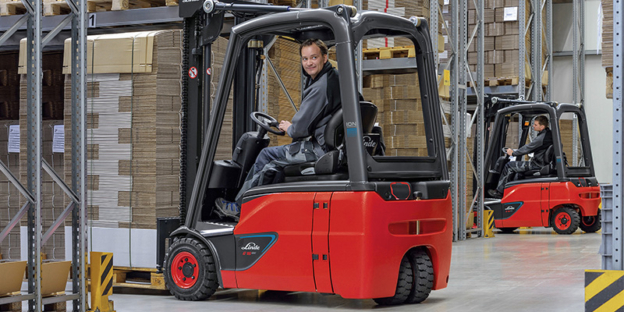Forklifts are mostly employed in the manufacturing sector for storing and handling large products. They have motorized or battery-operated counterbalanced carts. They feature numerous forks on a hydraulic mast up front. Forklifts have three or four wheels and use the rear wheel to steer. Forklifts come in a broad variety, and each type is made to do a certain job. These are required for handling inventory and transporting bulky cargo to different places like storage, transport vehicles, etc.
For several reasons, it is essential to purchase the forklift wisely. Forklifts operate for hours together in a warehouse or a manufacturing firm. So, while determining the kind of forklift that will best fit your company's needs, you have to be cautious while buying it. In order to keep up with changing times and regulations, if you want to purchase a new forklift, there are a few things you need to ask beforehand, as mentioned below in this blog. These questions will help you understand the specifications and the kind of forklift that will work best for your material handling needs in your warehouse or manufacturing firm.
What are your system requirements?
The most fundamental and crucial question to ask when purchasing a forklift is this one. You might be interested in learning a forklift's load capacity in order to better understand your company's needs. Do you deal with heavier weights or more lightweight loads at your company? This knowledge will make it clear to you if an electric stacker will do or whether a heavy-duty forklift is required.
A lot relies on the forklift's working hours, manoeuvrability, and the width of the facility's small aisles, as well as whether you'll be utilizing it indoors or outside. Because forklifts are created differently for various environments, objectives, and levels of labour intensity, it is crucial to take these factors into account. Be sure to do your research before making a purchase.
Do you have a diesel or an electric forklift in mind?
As per the demands, you must decide whether a forklift - electric or diesel - will work best for your material handling requirements. Both are great each of the powertrains excels in its forte, Diesel forklifts are big and strong vehicles powered by diesel engines. Diesel engines produce more drive line torque at low RPM. The total cost of ownership of a diesel forklift is lower, and it has a longer engine life than the LPG.
Electric motors, unlike diesel, gasoline, and liquid propane gas internal combustion engines, do not emit any exhaust. There is no hazardous carbon monoxide to breathe for operators or surrounding workers, and no carbon dioxide greenhouse gases to warm the climate. Except for the tyres, the lift, and the sound of the safety backup horn or warning beacon, an electric forklift makes almost no noise. Because electric forklifts lack an engine, transmission, or radiator, they have fewer moving parts that require maintenance.
Keep in mind the scope of work of your warehouse handling equipment
You must be aware of the benefits of a forklift before making an investment in one. To utilize it to its greatest capacity, it is essential to get familiar with its adaptability. Additionally, you should ask about the best location for its job since a forklift may increase machine handling productivity if used wisely. Making the wrong decision can diminish productivity and lower the return on investment.
Now that you're aware of the inquiries you must make before purchasing a forklift, you also need to confirm that the individual driving it is properly educated and equipped to carry out this duty. Maintaining your forklift is crucial to ensuring that it serves you well. As a result, choosing a forklift and investing in a qualified forklift operator are both crucial decisions.
Visit our website to view our range of forklifts and warehousing equipment if you're interested in purchasing modern, well-equipped, high-performance, and durable forklifts. We also provide the option of renting the material handling equipment

